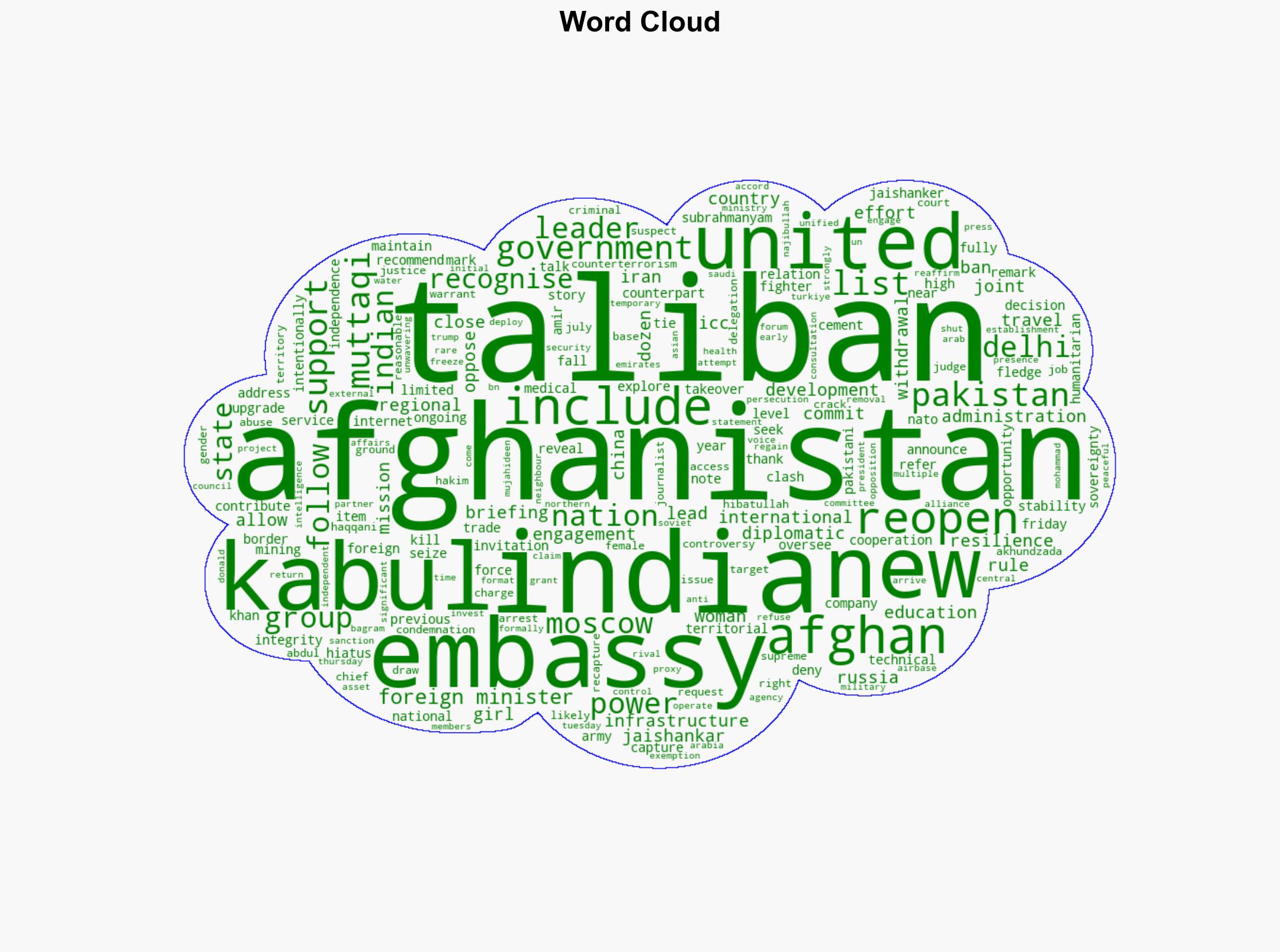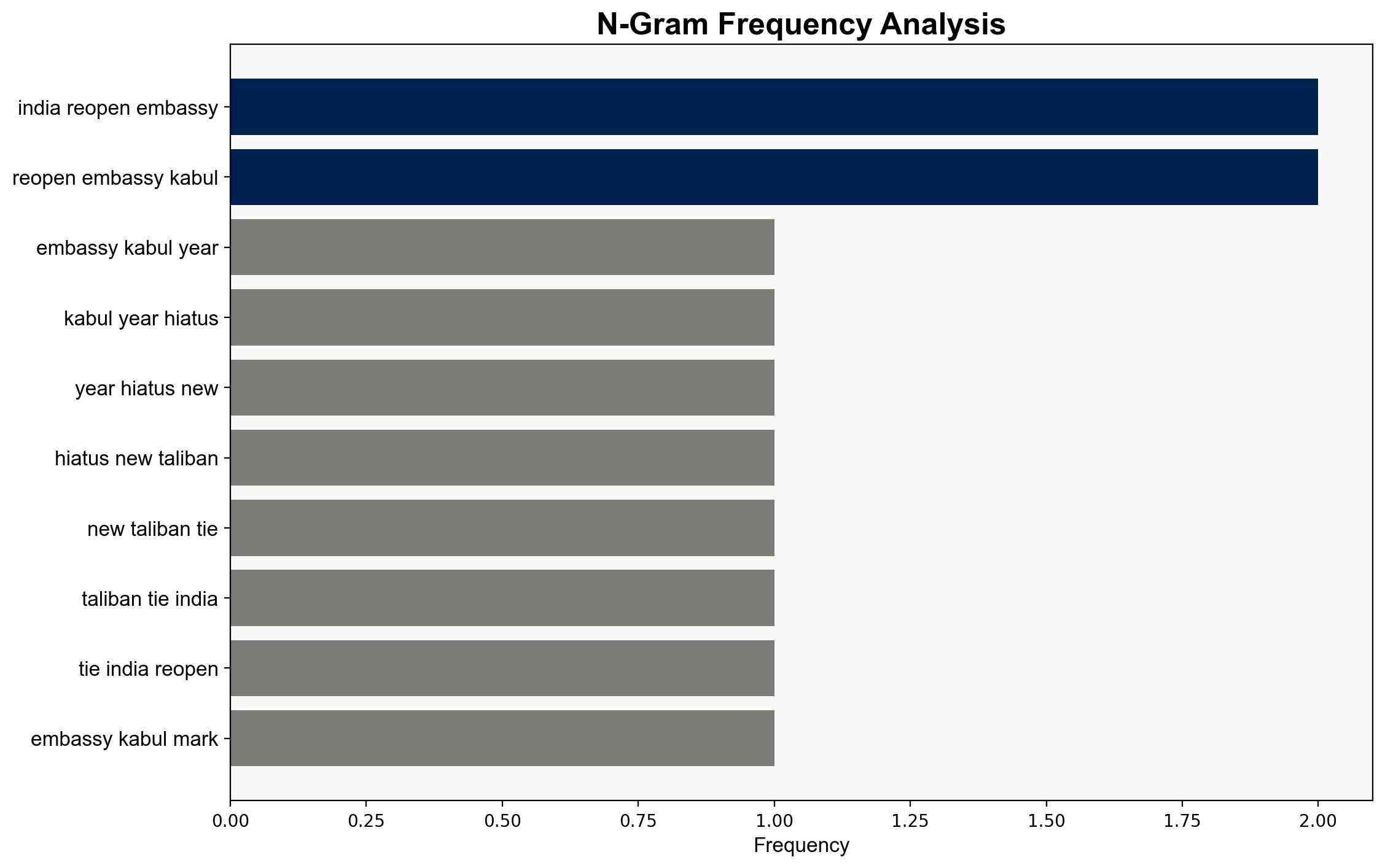India to reopen embassy in Kabul after 4-year hiatus amid new Taliban ties – Al Jazeera English
Published on: 2025-10-10
Intelligence Report: India to reopen embassy in Kabul after 4-year hiatus amid new Taliban ties – Al Jazeera English
1. BLUF (Bottom Line Up Front)
India’s decision to reopen its embassy in Kabul signifies a strategic shift towards engaging with the Taliban administration. The most supported hypothesis is that India aims to secure its geopolitical interests and economic opportunities in Afghanistan while cautiously navigating the Taliban’s controversial governance. Confidence level: Moderate. Recommended action: India should maintain a balanced approach, ensuring diplomatic engagement does not compromise its stance on human rights and regional security.
2. Competing Hypotheses
1. **Hypothesis A**: India is reopening its embassy to strengthen diplomatic and economic ties with the Taliban, aiming to secure influence and economic opportunities in Afghanistan.
2. **Hypothesis B**: India is reopening its embassy primarily to monitor and counterbalance Pakistan’s influence in Afghanistan, using diplomatic presence as a strategic foothold.
Using ACH 2.0, Hypothesis A is better supported due to India’s historical investment in Afghan infrastructure and the invitation to explore mining opportunities. Hypothesis B is plausible but less supported by current evidence.
3. Key Assumptions and Red Flags
– **Assumptions**: India believes engagement with the Taliban will not significantly damage its international standing. The Taliban will honor commitments to allow diplomatic activities.
– **Red Flags**: Taliban’s track record on human rights and governance raises concerns about the stability and reliability of any agreements. Lack of clarity on how India will address potential backlash from international partners.
4. Implications and Strategic Risks
– **Economic Risks**: Potential instability in Afghanistan could jeopardize Indian investments.
– **Geopolitical Risks**: Engagement with the Taliban might strain India’s relations with Western allies and human rights organizations.
– **Security Risks**: Increased presence in Afghanistan could expose Indian assets and personnel to security threats, including terrorism.
5. Recommendations and Outlook
- **Mitigation**: Establish clear protocols for security and contingency planning for embassy staff.
- **Exploitation**: Leverage diplomatic presence to foster economic partnerships, focusing on sectors like mining and infrastructure.
- **Scenario Projections**:
– **Best Case**: Stable diplomatic relations lead to economic growth and regional stability.
– **Worst Case**: Deterioration in security and governance results in withdrawal and loss of investments.
– **Most Likely**: Gradual improvement in relations with cautious economic engagement.
6. Key Individuals and Entities
– Subrahmanyam Jaishankar
– Amir Khan Muttaqi
– Hibatullah Akhundzada
– Abdul Hakim Haqqani
7. Thematic Tags
national security threats, cybersecurity, counter-terrorism, regional focus





